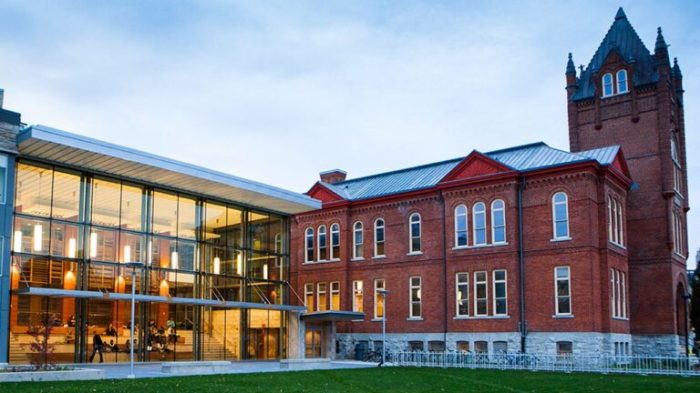| Law College | Unique Course Offerings | Specializations | Experiential Learning Opportunities |
|---|---|---|---|
| University of Toronto Faculty of Law | – Juris Doctor/Master of Laws in Intellectual Property Law – Juris Doctor/Master of Public Health |
– Business Law – Criminal Law – Environmental Law – Health Law – Intellectual Property Law – International Law – Labour Law – Tax Law |
– Legal Aid Clinic – Pro Bono Students Canada – International Human Rights Program |
| McGill University Faculty of Law | – Juris Doctor/Master of Arts in International Relations – Juris Doctor/Master of Business Administration |
– Civil Law – Common Law – International Law – Public Law |
– Legal Information Clinic – Mediation Clinic – Moot Court Competitions |
| University of British Columbia Faculty of Law | – Juris Doctor/Master of Global Affairs – Juris Doctor/Master of Public Policy |
– Business Law – Criminal Law – Environmental Law – Health Law – Indigenous Law – International Law – Labour Law – Tax Law |
– Community Legal Assistance Society – Innocence Project – Environmental Law Centre |
| Osgoode Hall Law School of York University | – Juris Doctor/Master of Environmental Law and Sustainability – Juris Doctor/Master of Financial Law |
– Business Law – Criminal Law – Environmental Law – Health Law – Intellectual Property Law – International Law – Labour Law – Tax Law |
– Downtown Legal Services – Innocence Project – International Human Rights Program |
| University of Alberta Faculty of Law | – Juris Doctor/Master of Arts in Indigenous Governance – Juris Doctor/Master of Public Health |
– Business Law – Criminal Law – Environmental Law – Health Law – Indigenous Law – International Law – Labour Law – Tax Law |
– Legal Aid Alberta – Pro Bono Students Canada – Moot Court Competitions |
Career Outcomes and Employability
Graduates from top law colleges in Canada enjoy excellent career outcomes. Employment rates are consistently high, with the majority of graduates securing positions in prestigious law firms, government agencies, and corporations.
The law colleges provide robust support systems for career development and job placement. They offer a range of services, including:
- Career counseling and guidance
- Job fairs and networking events
- Resume and cover letter writing workshops
- Interview preparation
- Mentorship programs
Employment Rates
The employment rates for graduates from top law colleges in Canada are consistently high. For example, the University of Toronto Faculty of Law reports that over 90% of its graduates secure employment within six months of graduation.
Career Paths
Graduates from top law colleges in Canada pursue a wide range of career paths. The most common career paths include:
- Litigation
- Corporate law
- Government law
- Academia
- Public interest law
Support Systems, Best law colleges in canada
The top law colleges in Canada provide a range of support systems to help students with career development and job placement. These support systems include:
- Career counseling and guidance
- Job fairs and networking events
- Resume and cover letter writing workshops
- Interview preparation
- Mentorship programs
Student Life and Campus Culture
The law colleges in Canada offer a vibrant and engaging student life, fostering a sense of community and belonging. With numerous extracurricular activities, student organizations, and social events, there are ample opportunities for students to connect, engage, and explore their interests outside the classroom.
The law school campuses are designed to provide a stimulating and supportive environment for students. Modern facilities, comfortable study spaces, and well-equipped libraries contribute to a conducive learning atmosphere. Student lounges and common areas serve as hubs for socializing, networking, and informal discussions.
Extracurricular Activities and Student Organizations
Law students can participate in a wide range of extracurricular activities, including moot court competitions, legal aid clinics, and student journals. These activities provide valuable practical experience, enhance legal skills, and foster a sense of camaraderie among students. Student organizations cater to diverse interests, such as law societies, cultural clubs, and sports teams, promoting a well-rounded student experience.





